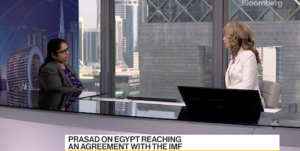Click here to access the original article, published 29 September 2015; comments highlighted below.
Investors must grapple with Middle East’s worsening volatility
To talk about risk in the Middle East, consistently the most volatile area of the world, often seems like asking whether it is conceivable that things could get worse.
All too often, as now, the answer is probably yes.
True, the recent agreement struck by Iran with the US and five other world powers, which trades verifiable curbs on Tehran’s nuclear programme in return for a phased relaxation of draconian sanctions on the Iranian economy, could be transformative.
The alternative to this diplomatic resolution was the mother of all regional wars. But that is in a region that is already being ripped apart by the conflict between Sunni and Shia Muslims, with Saudi Arabia and Iran leading the proxy contest from their respective sides of this centuries-old schism. Furthermore, the Islamic State of Iraq and the Levant (Isis) menaces them both, exploiting Sunni grievances and serial state failures.
Isis surged into Iraq from Syria in 2014, declared a cross-border caliphate and proceeded to rule and conquer with limitless violence. It is a far greater jihadi menace than al-Qaeda, which spawned its precursor after the 2003 US-led invasion of Iraq.
The entity is self-funding and well armed, and holds roughly a third of Iraq and nearly half of Syria, with former Iraqi officers providing an administrative backbone. It is barbaric and sophisticated, and adept at opening fissures in neighbouring countries such as Lebanon, Turkey, Jordan and Saudi Arabia. The US-driven air campaign has had partial successes in containing Isis, but has so far failed to prevent it from consolidating.
Traditional US and western allies in the region are meanwhile in disarray. Saudi Arabia and its Sunni Arab allies, as well as Israel, fear that an Iran free of sanctions will use its unfrozen foreign exchange assets and increased oil and gas revenue to lock in or even extend its gains in Arab lands.
The US invasion of Iraq installed a Shia majority government there, and these allies watched as Iran and its proxies built a Shia axis across the Levant from Baghdad to Beirut, and stretching down into the Gulf.
Barack Obama has publicly counselled Arab rulers to fret less about Iran and worry about their own domestic fragility. Saudi Arabia, which reacted to the regional upheaval of the Arab Spring by showering its subjects and clients with money rather than grappling with reform has a new, untried leadership under King Salman. The absolutist monarchy is strengthening the position of the Wahhabi clerical establishment, whose extremist doctrines — especially regarding the Shia — often resemble the ideas of Isis.
Turkey, where the increasingly authoritarian Recep Tayyip Erdogan is courting unrest with his pursuit of untrammelled presidential power, risks blowback from Isis — which along with other Islamist rebel groups was allowed until this year to use the country as a jihadi pipeline into Syria to fight the regime of Bashar al-Assad. Two Isis bombings against Kurdish targets in June and July could be followed by reprisals, if Ankara acts on its pledge to help its Nato allies fight the jihadis in Syria.
Egypt, under Abdel Fattah al-Sisi, the army chief who deposed an elected Muslim Brotherhood government in 2013 and was then elected president, is too sunk in domestic problems to play the country’s traditional role of leading the Arab world.
Remarkably Jordan — usually seen as intrinsically fragile because of its majority Palestinian population — is now seen almost as a rock of stability in a region in meltdown.
The wider region is marked by a dangerous dearth of moderate Sunni leadership, the discrediting of mainstream Islamist government (in Egypt and now Turkey), and the feeble influence of traditional external actors such as the US and European powers — magnified now that Russia is flexing its muscles in Syria.
This might embolden Iran which, like Russia, props up the Assad regime in Syria to press its advantage. But Russia has never been more than a spoiler in the Middle East. And Iran knows that the Sunni massively outnumber the Shia and may wish to cash in while it is ahead. And one thing it needs is cash.
The single-mindedness with which Iran negotiated the nuclear deal to unlock sanctions relief suggests pragmatic self-interest. It needs to legitimise its position as a regional power that its neighbours can tolerate, as well as reconnect with the world economy and start providing opportunities for an educated but restive young population.
If the nuclear detente with the international community could be translated into an entente with its neighbours — what President Obama called a “practical conversation” — in which Iran helps, for example, facilitate a transition out of Syria’s civil war, capital-rich Gulf states could help with some of the financing Tehran needs.
Nasser Saidi, a leading economist formerly at the Dubai International Financial Centre, conservatively estimates Iran’s unmet investment needs at $850bn over the next five years.
Iran needs help to finance large quantities of capital goods, from airliners to oil and gas infrastructure. The United Arab Emirates, with its sovereign wealth funds, international construction companies, and the big Iranian commercial diaspora in Dubai, is well-placed to profit.
Risk, even in the Middle East, is also opportunity.




